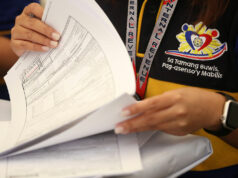THE post-Brexit United Kingdom (UK) expects to establish an export program that will emulate the effects of the European Union’s (EU) Generalized System of Preferences Plus (GSP+) scheme, ensuring a degree of continuity for exporters shipping goods there.
UK Trade Envoy to the Philippines and Member of Parliament Richard Graham said the UK intends to implement trade arrangements that will mirror GSP+, if current agreements hold.
“Under the terms of the agreement already reached, assuming we pass it, which I believe we will, then we go about this transition period of about 18 months where all the rules and regulations are the same. Nothing changes in practice on both the tariffs and the non-tariff barriers, customs arrangements, and so on. So in that scenario it is literally and exactly the same.”
“Now, if something goes wrong, and we leave the European Union without a deal, we’ve already said that we will replicate the GSP+ in exactly the same way, the same rules, the same conditions. We might call it something slightly different, I think it’s going to be called something like an economic agreement. But it’s going to be exactly the same from day 1 when we leave the European Union,” Mr. Graham said.
“So for all the exporters, it’s business as usual,” he added.
Under the EU GSP+, scheme, the Philippines enjoys tariff-free exports covering over 6,000 products on the condition that Manila complies with 27 core international conventions that cover human and labor rights, environmental protection and good governance.
In place since December 2014, the GSP+ makes the Philippines currently the only country within the Association of Southeast Asian Nations (ASEAN) that is allowed tariff-free trade with the EU.
Mr. Graham said trade and investment is likely to shift to non-European Union markets in the next few years in the wake of Brexit, with ASEAN becoming more of a focus area.
“At the moment around 48% of our exports go to the EU, around 52% to the rest of the world but the economic growth in ASEAN means that over the next 10 to 20 years, the percentage outside EU will increase anyway,” Mr. Graham told reporters in Makati City last week.
According to a 2018 ASEAN report, the combined gross domestic product (GDP) of ASEAN members accounted for 3.5% of global GDP in 2017.
“We’re exerting more effort. We have an independent department for international trade, we have trade envoys and we’re encouraging businesses to look further afield. I think that figure will only grow and grow,” he added.
The UK’s Department of Trade said total trade with non-EU members in 2018 was £838.8 billion, accounting for 65% of the UK total and rising 3%.
In a statement in December assessing the UK’s trade performance in the second quarter last year, the UK said exports to ASEAN rose 10.4% year on year, with some of the world’s fastest-growing economies showing great interest in British produce.
Mr. Graham also made a pitch for the Philippines to look into the potential of the UK market.
“With the Philippines, with your high levels of English… I think the UK is a better natural partner for you than some of the countries in continental Europe. So we want to be your partner of choice, not just in the EU but in the West,” he said. — Janina C. Lim



